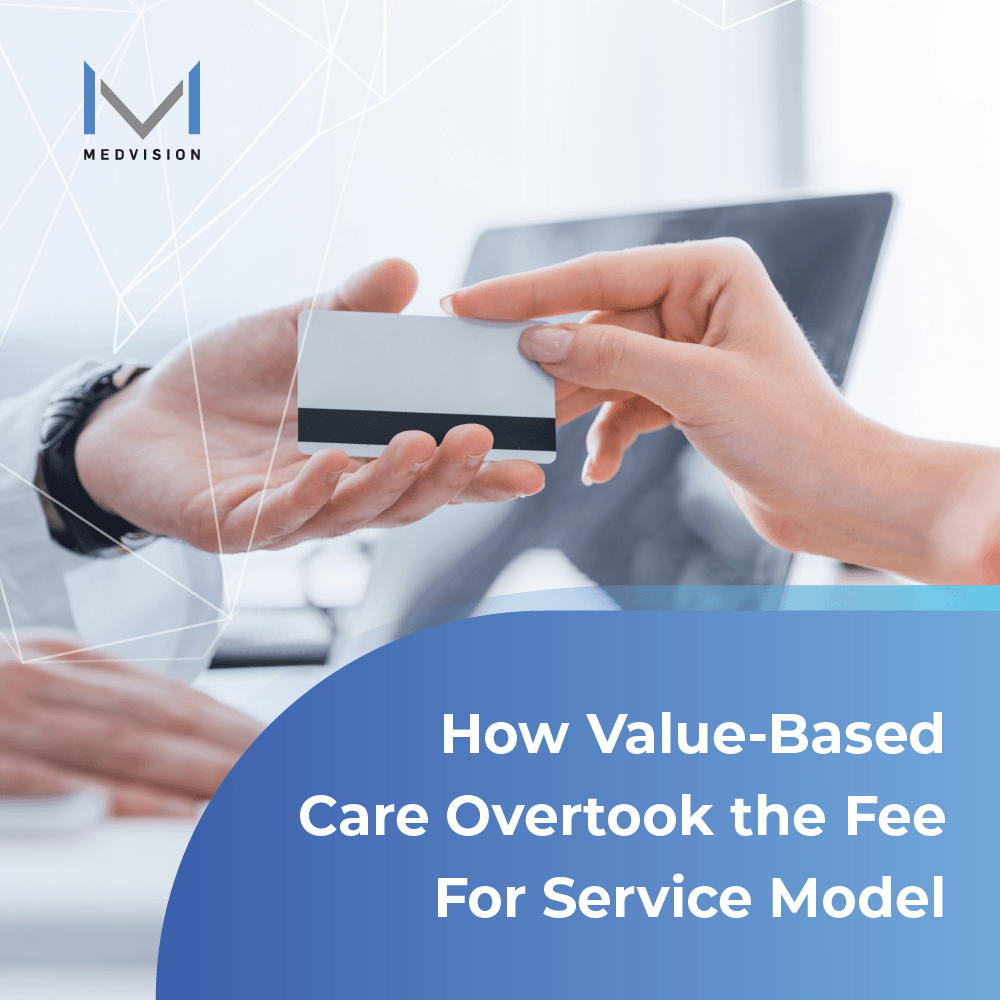Defining Value-Based Healthcare: What Is Its Function
It is no surprise that, as a result of decades-long unhealthy behaviors, health conditions have increasingly become more chronic and complex. On a defining global scale, impacts are now felt by both young and aging people. As patients’ poor medical state worsens, healthcare leaders have recognized the urgency to design value-based care; the alternative intervention that can potentially alleviate risks and help patients live a more healthy life. In an effort to address the health crisis, provider organizations today are slowly shifting from fee-for-service (FFS) to
value-based care. But,
what is value-based healthcare and how can it function to promote health outcomes?
What is Value-Based Healthcare?
Value-based healthcare is a health delivery model that pays providers, hospitals, and physicians based on the quality of their service and performance and how well the patient recovers. In contrast to the conventional FFS system, value-based care incentivizes medical professionals and facilities for assisting patients in improving preventive care and outcomes, reducing complications of chronic diseases, and ultimately cultivating overall well-being.
The Implementation of Different Value-Based Healthcare Models
Providers and patients alike benefit from the same rewards under the Centers for Medicare and Medicaid Services (CMS) value-based care agreement. When implemented, what value-based healthcare models do is act as a framework for healthcare organizations to successfully achieve effective care coordination. CMS offers a few different value-based programs, including the following:
Accountable Care Organizations (ACOs)
ACOs can
improve the quality of care and costs. As a networked team, healthcare providers in this organization work hand-in-hand to provide the most optimum level of care performance at a fraction of the cost.
Physician Value-Based Modifier (PVBM)
The physician workforce is assessed by the quality of care they render for their patients. Their payment is determined based on the performance of certain costs and quality measures.
Hospital Value-Based Purchasing (HVBP)
Acute care hospitals receive incentive payments for the services they provide to Medicare patients. This initiative can lead to an enhanced patient experience during hospital stays.
CMS and other healthcare entities have been pushing for value-based care, campaigning for a transformation in the healthcare system to foster more quality and value to patient care.
Enhancing Patient Health Outcomes Through Quality Care
With value-based healthcare, the betterment of the health populations is put at the heart of service. A patient-centered care delivery approach such as this keeps everyone healthy, which ultimately prevents an unbearably high healthcare cost in the long run.
Framing care measures around value-based models is guaranteed to improve patient health outcomes, reduce hospital readmissions through strategic post-discharge planning, and align clinicians with their patients.
Deliver Better Value-Based Care with MedVision Healthcare Solutions!
MedVision healthcare solutions provide the support organizations need to implement value-based care. From risk stratification to patient population management, MedVision can help you operate efficiently through the comprehensive web-based administrative platform, namely QuickCap (QC7).
- Limitless case management plans.
With QC7, you can freely create care plans and solutions according to the identified set of needs with unlimited case management programs.
- Detailed data analytics and reporting capabilities.
QC7 is well-equipped with different tools that allow you to easily pull up detailed analytics and reports, which helps you make the necessary actions and steps for a better patient experience.
- Efficient clinical alerts.
QC7 has the ability to configure periodic clinical alerts, allowing you to stay up-to-date on every member or patient’s state and progress.
What you can expect from value-based healthcare is a well-cared patient group. And with the reinforcement of MedVision healthcare solutions, a value-based environment can only experience efficient and progressive medical workflow.
May 30, 2022
Fee for service (FFS) has been the customary method in healthcare. Now, patient-centered value-based care is gaining popularity and momentum.
May 25, 2022
A detailed rundown about the importance of good value-based care for you and the people around who matters.
August 17, 2021
Benefits of value-based healthcare programs, and MedVision’s healthcare solutions for enhanced healthcare coordination.














